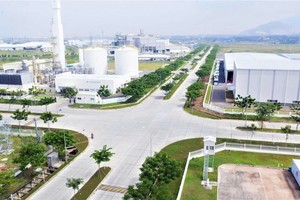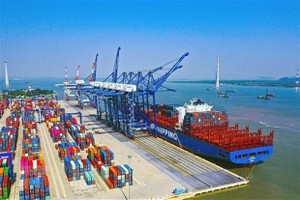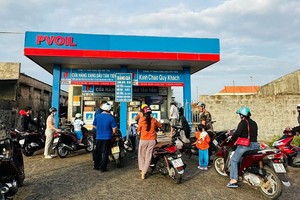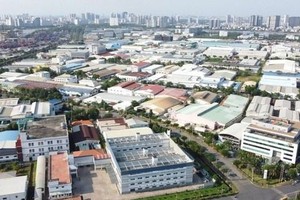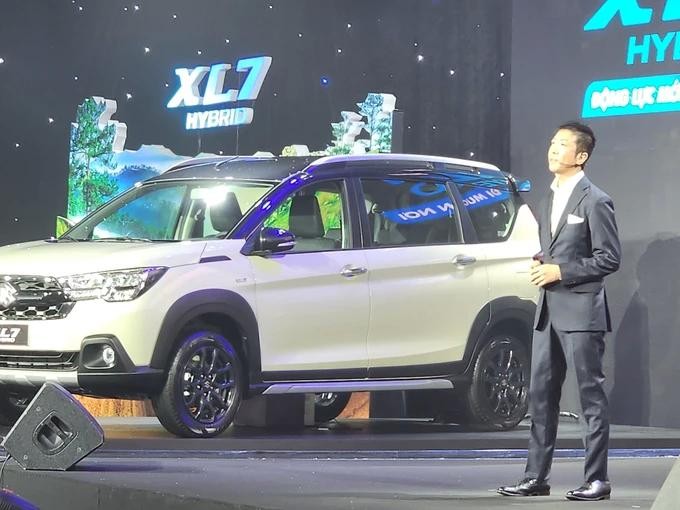
Since the beginning of 2024, several Chinese electric car manufacturers have entered the Vietnamese market, offering a variety of models at different price points. The competition among these electric vehicle brands has benefitted consumers who can choose from an increasing number of options for electric cars. Along with that, there has been a growing concern over infrastructure and amenities.
BYD, the world’s largest electric car manufacturer, has recently entered the Vietnamese market with an ambitious plan. In the third quarter of 2024, numerous showrooms across the country introduced BYD vehicles. These showrooms not only display cars but also provide charging stations, including at least one fast-charging station.
BYD is not the only Chinese electric car company entering in the Vietnamese market. Major incumbent carmakers are increasing ambition as well. For instance, TMT Motors also before announced a collaboration with SGMW (a joint venture between SAIC, GM, and Wuling Automobile) to introduce the Wuling Hongguang electric car to the market in four variants, priced between VND239 million and VND279 million respectively.
Similarly, Geleximco Group and Omada & Jaecoo Company have also signed a memorandum of understanding to build a manufacturing and assembly plant for gasoline, gasoline-electric (hybrid), and pure electric vehicles for domestic use and export. Another company from China, Great Wall Motor (GWM), after launching the hybrid SUV model Haval H6 HEV (priced at over VND1 billion), has introduced the gasoline and hybrid versions of the Haval Jolion in Vietnam.
In addition, luxury electric cars were also available in Vietnam with the presence of three models from the Mercedes-Benz brand such as the EQB 250, EQE 500 4MATIC, and EQS 500 4MATIC. Furthermore, BMW has entered the Southeast Asian market with its i7, i4, and iX3 models. Alongside electric and hybrid vehicles, several renowned brands like Honda, Toyota, and Hyundai have also made their mark in Vietnam.
Recently, Suzuki officially introduced the XL7 hybrid car on August 20 in Ho Chi Minh City. This model combines sporty versatility with a hybrid system and is priced at approximately VND600 million per vehicle.
Meanwhile, when it comes to pure electric vehicles in Vietnam, VinFast is the earliest pioneer. Identifying Vietnam as a key market, in 2023, VinFast established the first domestic electric vehicle manufacturing plant in Vietnam and officially completed its electric vehicle product line in many segments, rising to dominate the Vietnamese market. Currently, the company's latest electric vehicle lines such as VF5, VF6, VF7, VF8, VF9, etc., are being aggressively pushed into the market.
Sales manager Pham Van Duc at a car dealership in Ho Chi Minh City’s Binh Tan District noted that the Vietnamese market for Chinese cars was relatively small in previous years, leading to less intense competition. However, this year, there has been a surge in Chinese electric vehicle manufacturers entering the market, creating a highly competitive landscape. CEO Vo Minh Luc of BYD Auto Vietnam assessed that the Vietnamese automotive market is sufficiently large to support the company's business. Currently, BYD is selling its vehicles in Vietnam at a loss of 30 percent to 35 percent.
While Vietnamese consumers now have a wider range of electric vehicles to choose from, the market is still facing challenges. The scarcity of charging stations is a major roadblock preventing the widespread adoption of electric vehicles. As the saying goes, charging stations are the 'lifeblood' of the electric vehicle industry. Without a robust charging network, even the most attractive electric vehicles may struggle to gain traction among consumers.
Lecturer Nguyen Manh Hung from the University of Transport and Communications’ Automotive Engineering Faculty highlighted the substantial costs associated with building charging infrastructure for electric vehicles. He emphasized that a strong charging network is a key differentiator for electric vehicle companies. When purchasing an electric vehicle in Vietnam, consumers prioritize well-established brands with superior service and, most importantly, a convenient charging experience, especially for long-distance travel.
Economist Nguyen Thuong Lang from the School of Trade and International Economics analyzed that the European Union's decision to impose higher taxes on electric vehicles could result in a flood of electric cars being exported to Southeast Asian markets, including Vietnam. To mitigate the potential negative impacts on domestic industries, Vietnamese authorities must urgently develop and enforce strict standards for imported electric vehicles.
Mr. Nguyen Thuong Lang argues that the lack of commitments from low-cost electric vehicle sellers regarding charging infrastructure necessitates stricter regulations. He proposes that authorities should mandate standards for both charging stations and vehicle batteries.
According to the General Statistics Office, Vietnam produced and assembled 172,200 cars in the first seven months of 2024, a year on year increase of 2.5 percent. The country also imported about 91,585 completely built-up cars during the same period. Hybrid vehicle sales reached 4,124 units, according to Vietnam Automobile Manufacturers’ Association.





